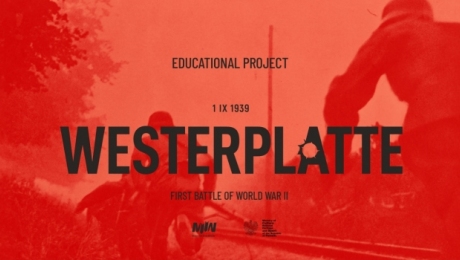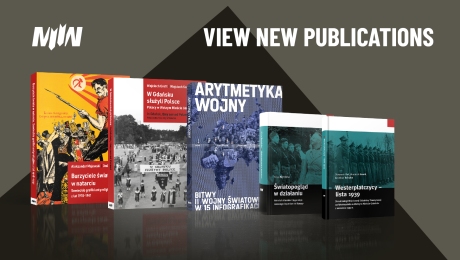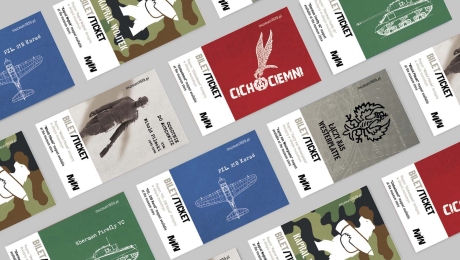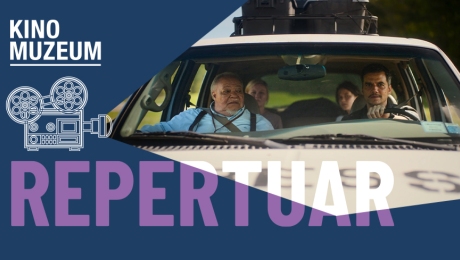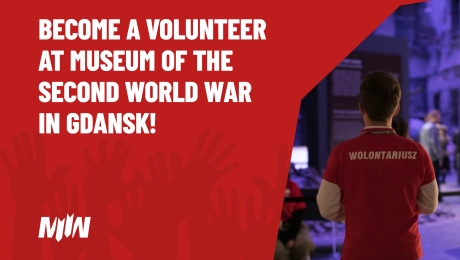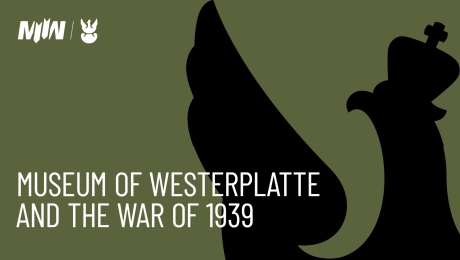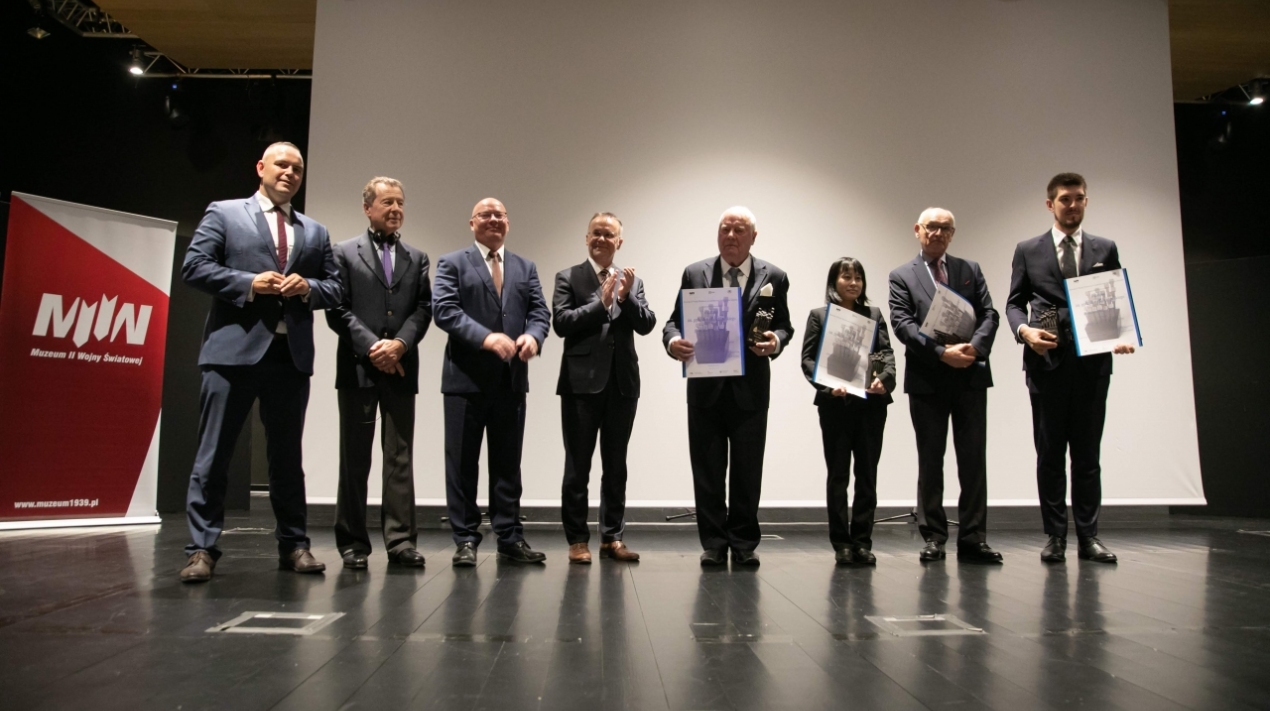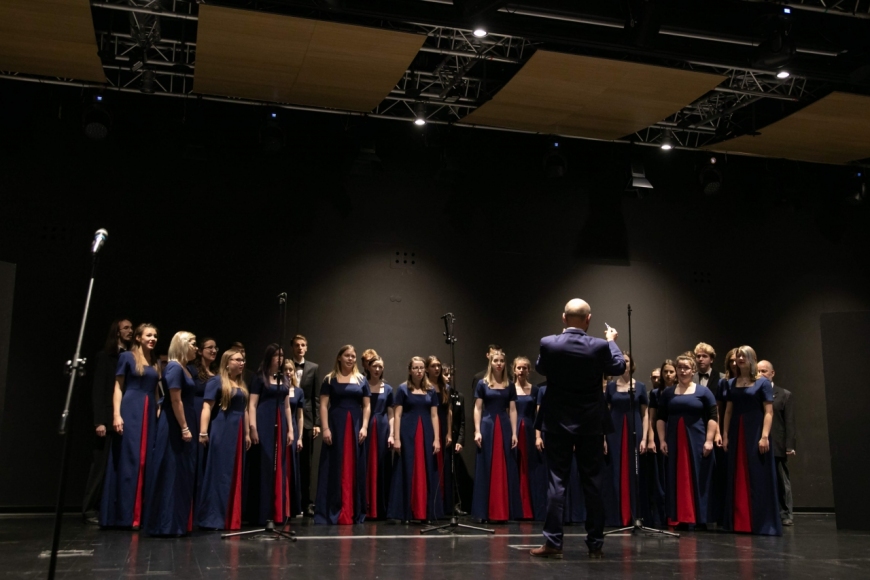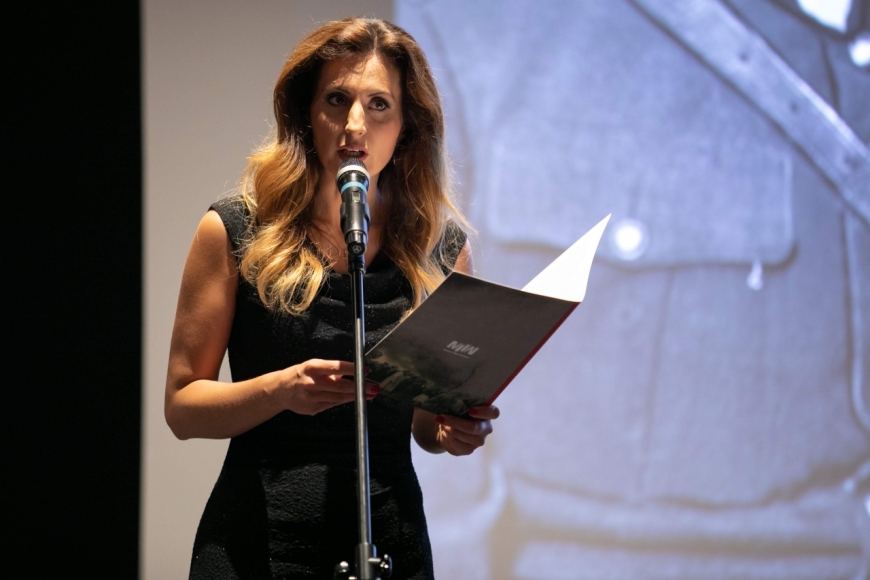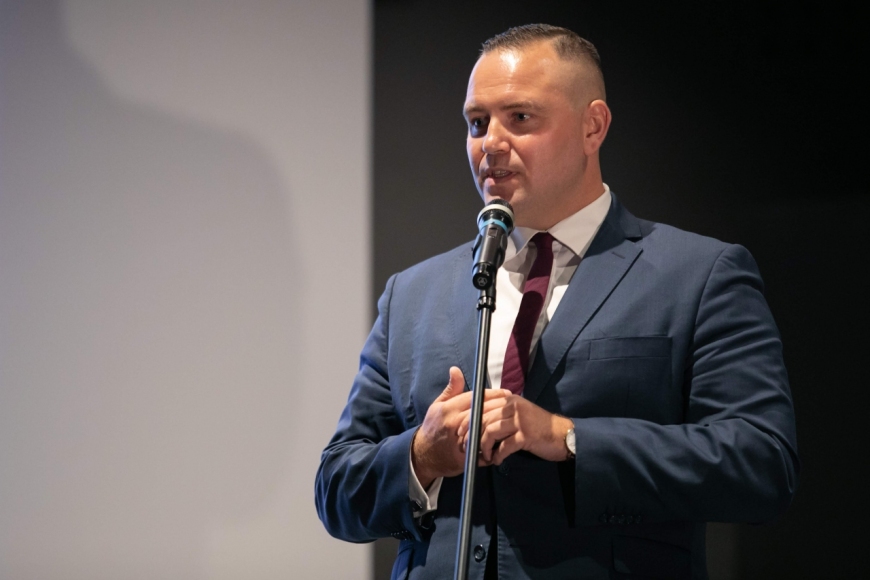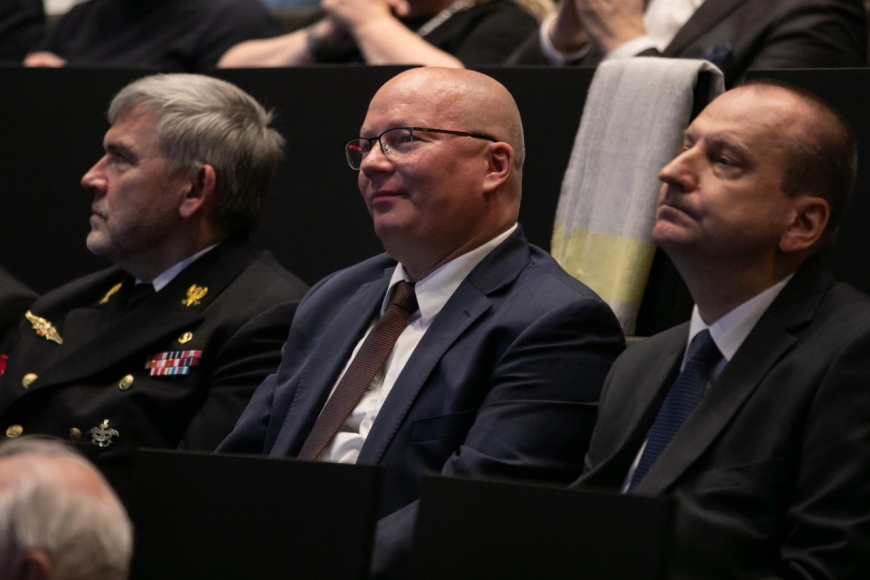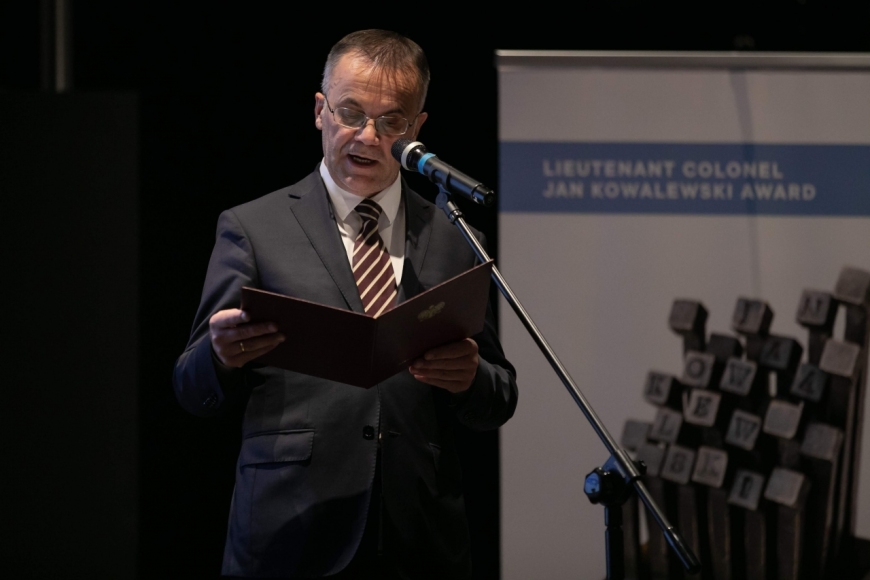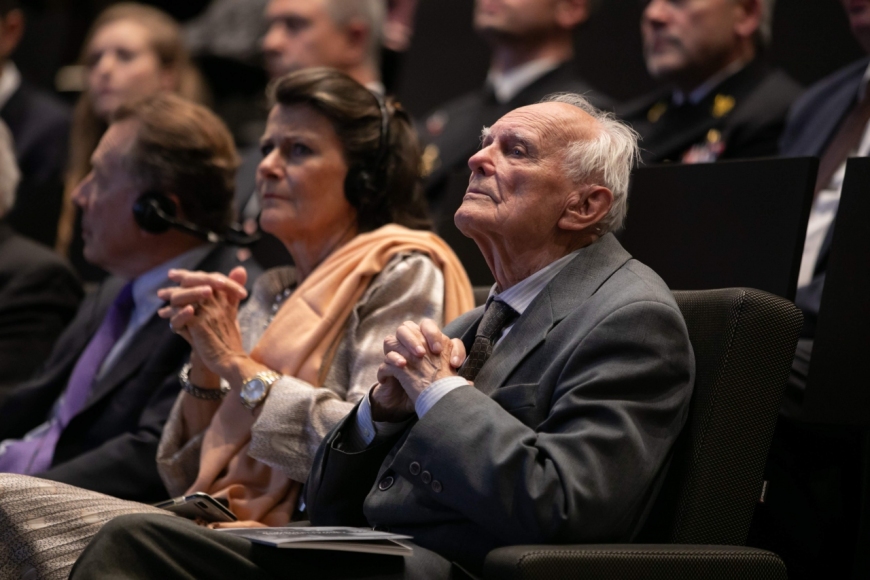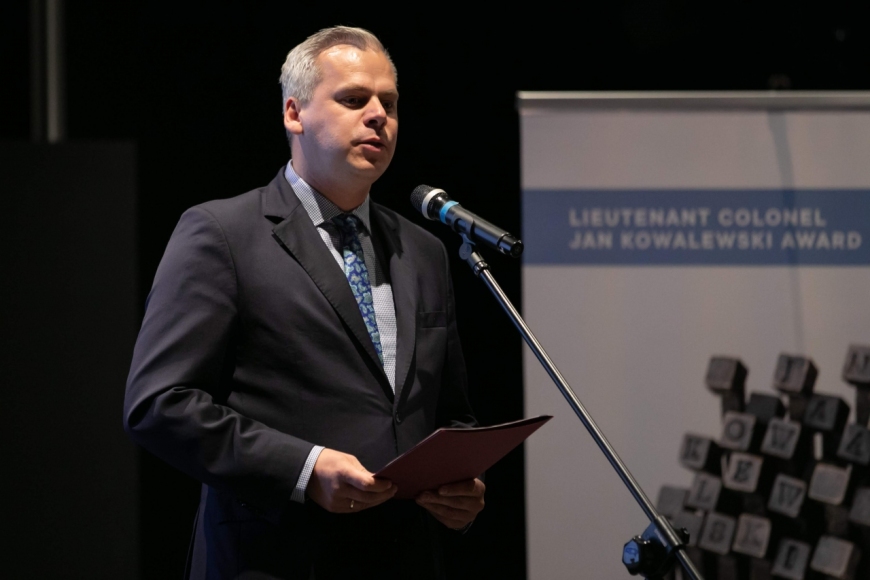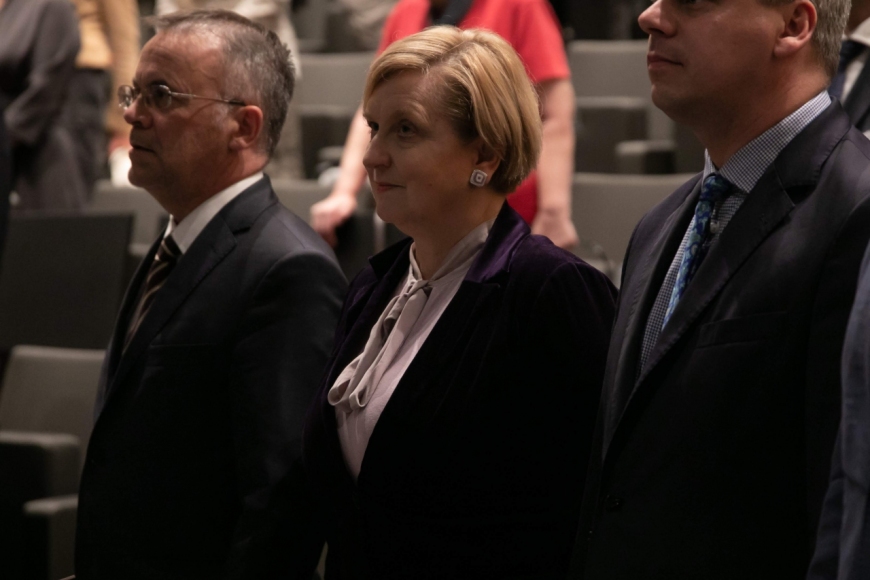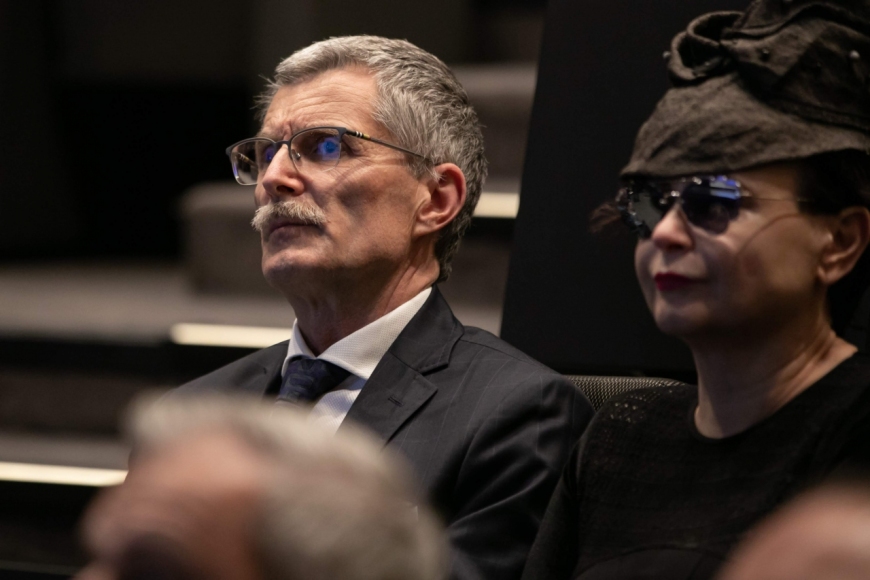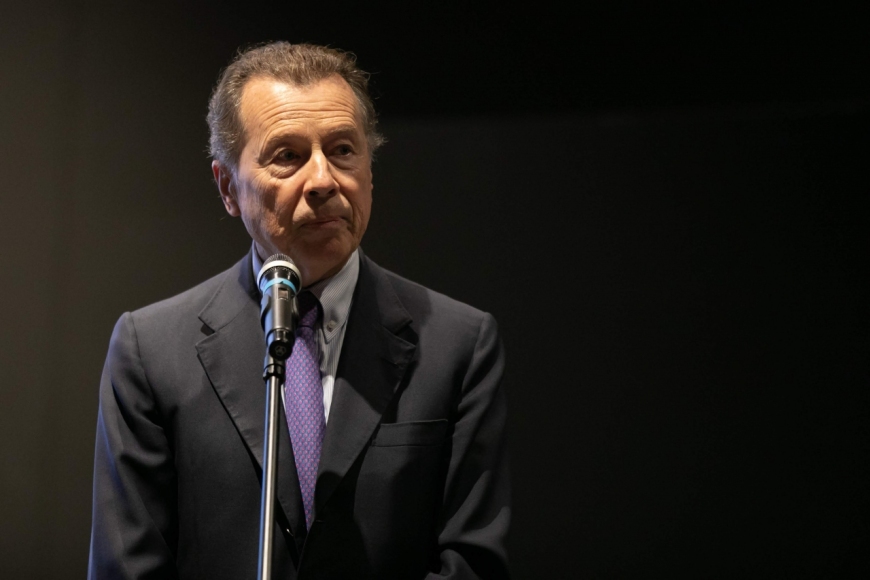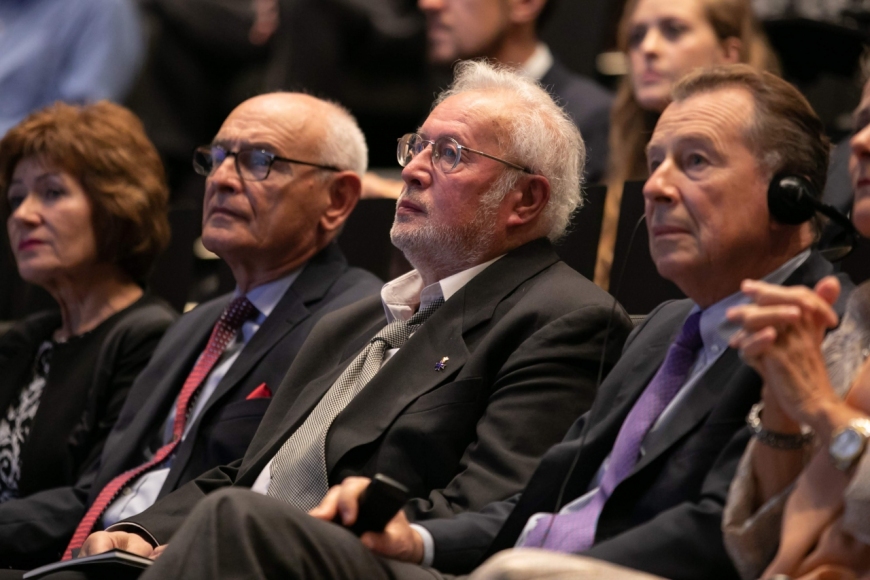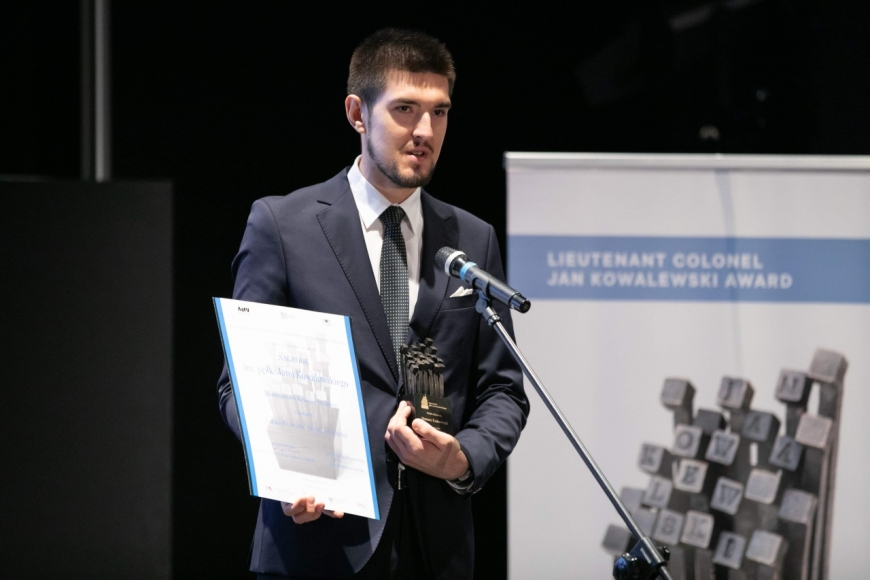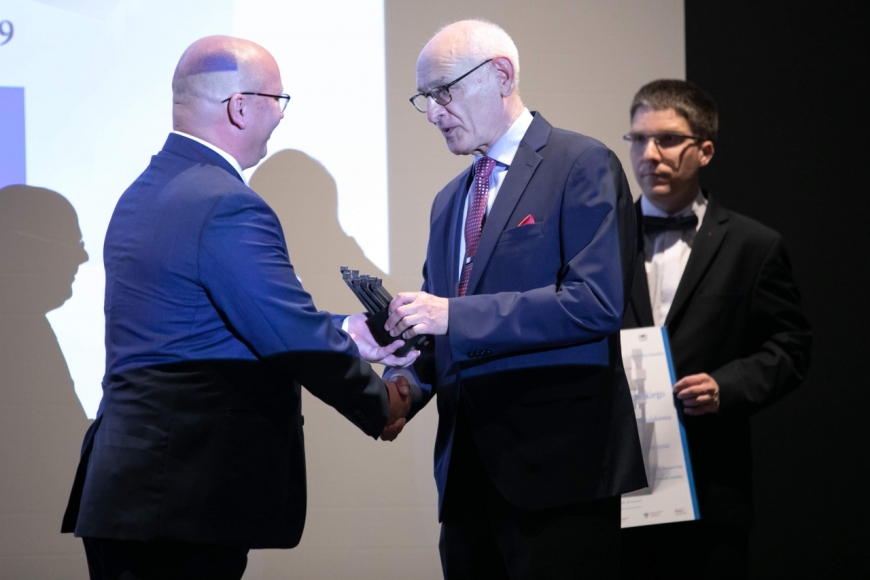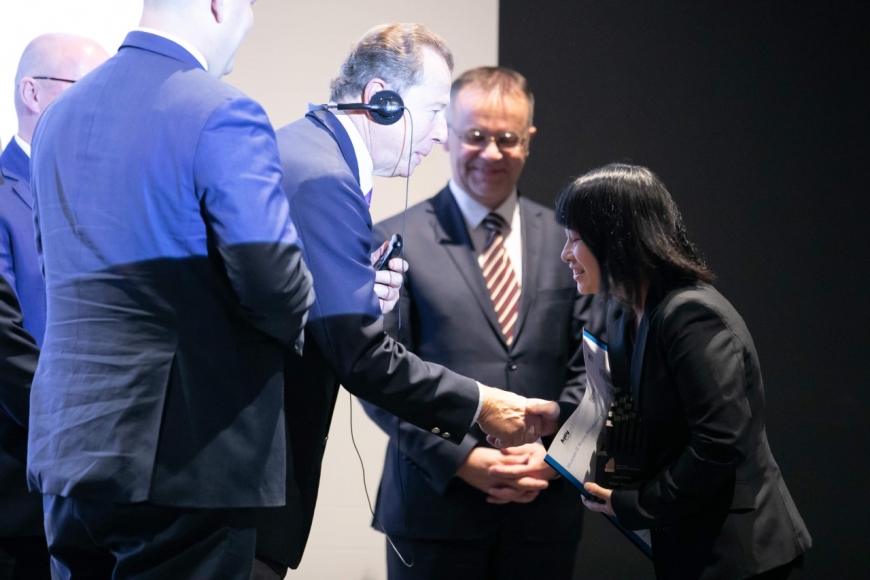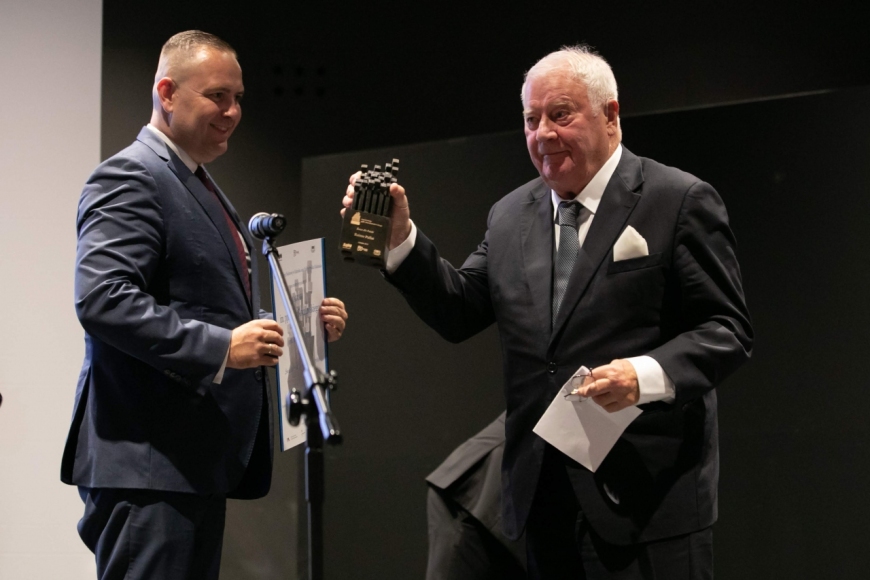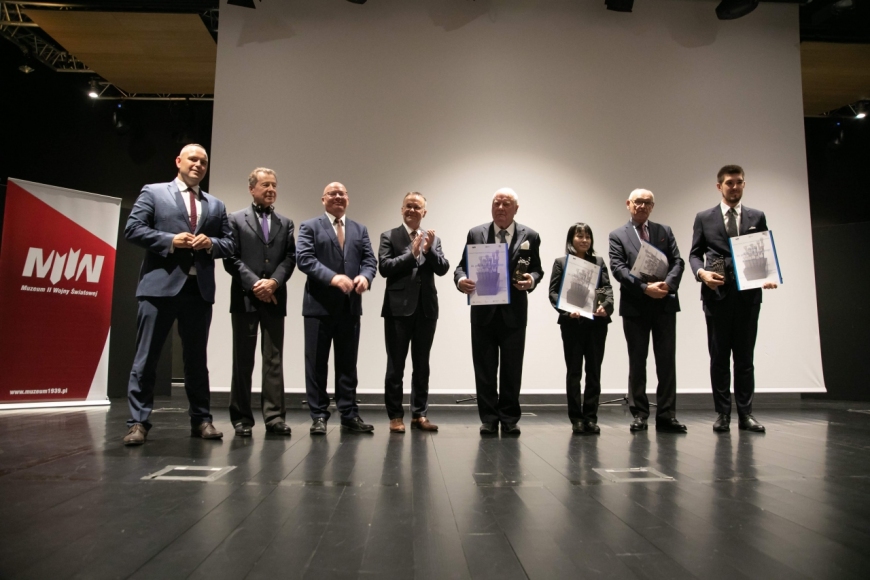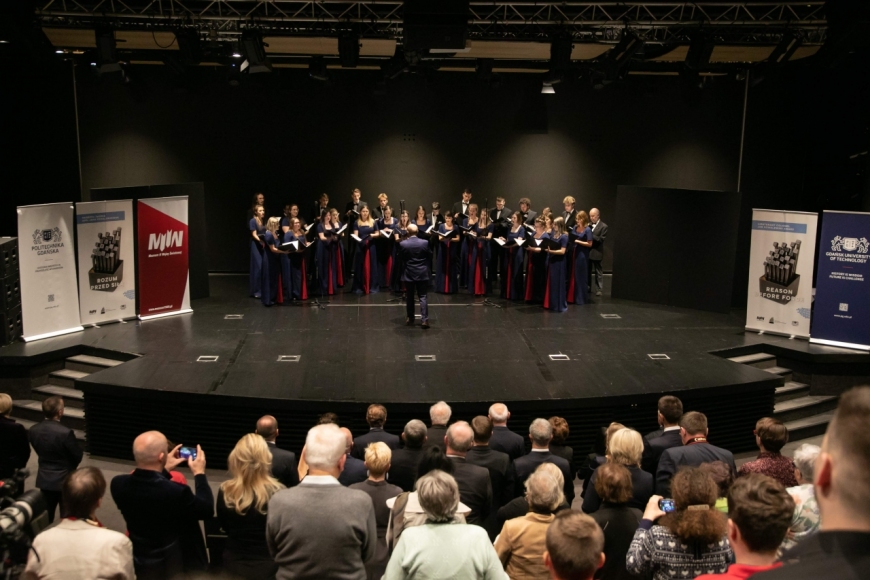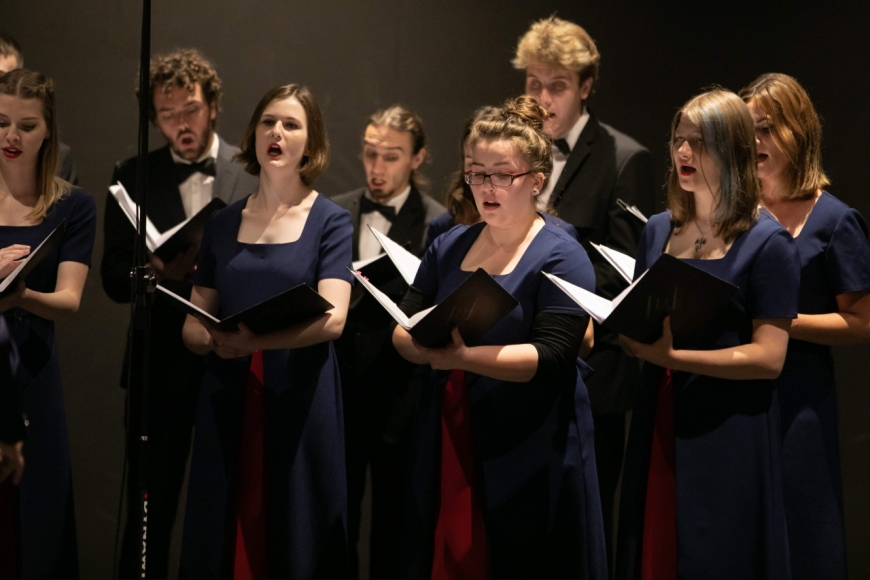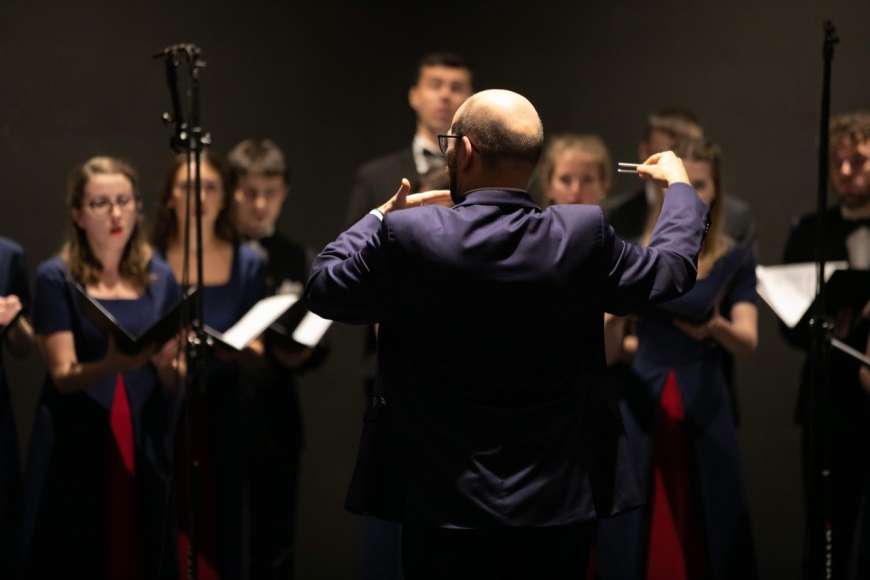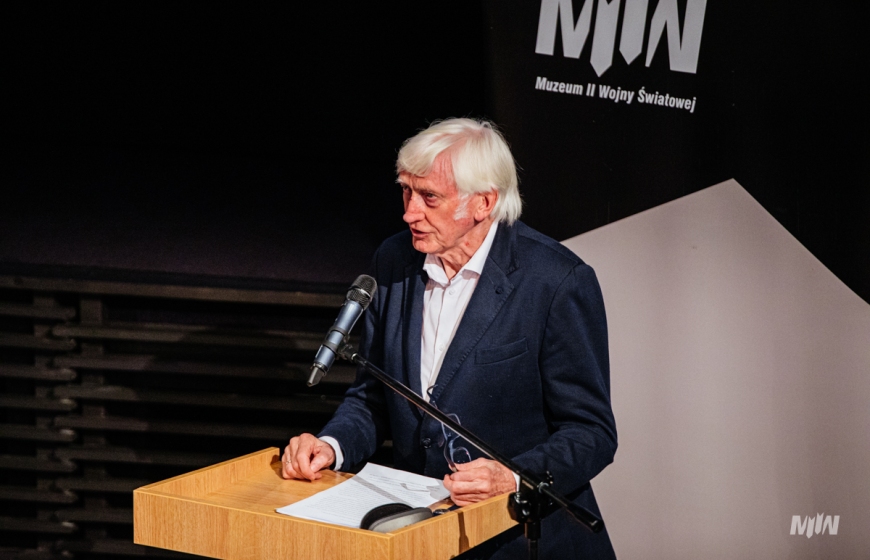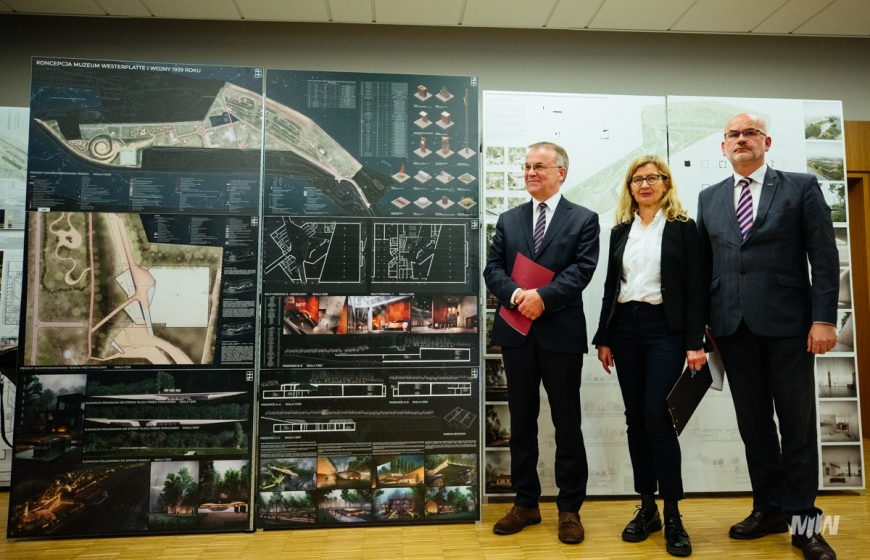The ceremony of presenting the Lieutenant Colonel Jan Kowalewski Award
Lieutenant Colonel Jan Kowalewski Award ceremony took place on the 28th of September 2019 in the Jan Olszewski conference room. The names of the laureates were announced along with their achievements which provided the basis for the accolade. Each of the four laureates received a bronze statuette by Professor Stanisław Radwański, a specially designed diploma and a financial reward. The Gdańsk University of Technology Academic Choir conducted by Professor Mariusz Mróz added splendour to the ceremony.
The guests were greeted by Karol Nawrocki PhD - Director of the Museum of the Second World War in Gdańsk, who addressed the attendees as follows:
Jan Kowalewski fought for independent Poland in 1918, in 1920 he was deciphering Soviet codes, thus contributing to stopping the Soviet offensive, while in the interwar period he laid basis for the Polish school of radiotelegraphy. He laid foundations for what we know also from WWII - breaking Enigma codes - which made the Poles famous worldwide to this day. In 1939, he was still serving the Republic of Poland, he was a diplomat and an officer of the Polish intelligence - he’s a great Polish hero, relevant also in the 21st century.
Then, the Secretary of State in the Ministry of Culture and National Heritage, Jarosław Sellin, took the floor and read PM Mateusz Morawiecki’s letter:
Thank you for the initiative to establish the Lieutenant Colonel Jan Kowalewski Award. This noble initiative initiated by the Gdańsk University of Technology and the Museum of the Second World War is associated with the 80th anniversary of the outbreak of WWII. You shall endeavour to honour prominent people from Poland and abroad, who, in their activities and achievements, refer to the Lieutenant Colonel’s attitude. Attitude which is reflected in the motto “Reason before Force”. I am happy that an extraordinary patriot - soldier, mathematician and cryptographer Jan Kowalewski, patronises the award. This outstanding officer, hero of the Polish-Soviet War, proved over and over again what a great power the human mind possesses in doing good. Let’s remember that Lieutenant Colonel Jan Kowalewski conducted the cipher section which decoded and intercepted hostile messages. His efforts played crucial part in Polish victory in the Battle of Warsaw.
Then, the floor was taken by Karol Rabenda, who read the letter from Jarosław Gowin, Deputy Prime Minister, Minister of Science and Higher Education:
It was with complete confidence that the Ministry of Science and Higher Education became the honorary patron of the first edition of the Lieutenant Colonel Jan Kowalewski Award. It is a great honour for me, particularly as the Award is given to those who, similarly to its patron, are people of great idea, imagination and talent. They are hard workers, and above all - people with great hearts and sensitivity, which allows to see the needs of modern world.
The ceremony was attended by Hugo Kowalewski-Ferreira, the Award patron’s grandson:
The Award’s motto - “Reason before Force” - very accurately describes the way my grandfather fought for freedom and democracy his whole life. Freedom and democracy are precious. My grandfather knew how much blood, sacrifice and health must be sacrificed to regain lost freedom. If we put mind beyond force, then we will be able to live in a better world.
Then started the ceremony of presenting the Lieutenant Colonel Jan Kowalewski Award to four laureates in four categories. Each of the four laureates received a bronze statuette by Professor Stanisław Radwański, a specially designed diploma and a financial reward.
The statuettes were given by Karol Nawrocki PhD - Director of the Museum of the Second World War in Gdańsk, Professor Engineer Krzysztof Wilde, PhD - Provost of the Gdańsk University of Technology, Jarosław Sellin - Secretary of State in the Ministry of Culture and National Heritage and Hugo Kowalewski-Ferreira - grandson of the Award’s patron.
Laureate in the category “Poland for the World” (under 35):
Mateusz Krakowczyk
Mateusz Krakowczyk is one of the most active Polish activists for popularisation and education in the field of astronomy, space research and related sciences. He joined the Student Astronautical Circle in 2013, where he was involved in the work on designing a Polish student’s satellite PW-Sat2 between 2013 and 2016. He was one of the persons responsible for the main target of the mission, the deorbit sail container, which was released correctly in the orbit after having been launched into the orbit in 2018. Besides the above-mentioned activity in the Student Astronautical Circle, Mr. Mateusz Krakowczyk was awarded also for his general activity and, amongst others, for the publication of a collection entitled “Zadania z Olimpiad Astronomicznych XXXVI-LX” [“Tasks from Astronomical Contests XXXVI-LX”] and his many years of activity in the youth astronomical association “Almukantarat Astronomy Club” (as its president since 2015). Additionally, since 2017, he has been the conductor of a four-voice student musical group singing liturgical music. In 2018, he founded in Warsaw the Choir of Cantors of Saint John the Baptist, which performs Gregorian chants.
Laureate in the category “Poland for the World” (over 35):
Professor Engineer Ryszard Katulski, PhD
He’s an experienced academic teacher, professor at the Gdańsk University of Technology. From the very beginning, the main focus of his professional activity has been associated with the use of radio technology in maritime telecommunications. He was awarded for, inter alia, the development and implementation, under his direction, of systemic and equipment-related solutions for components of electronic warfare, as part of research and development projects and doctoral dissertations, e.g. a system of technological demonstrator for detecting and counteracting electronic spoofing attacks in GPS navigation system. He also elaborated or led projects connected with devices for detecting signals hidden in noises from foreign radio stations, which are difficult to detect with the use of traditional methods. The devices make it possible to monitor the activity and location of foreign radio stations, providing important operational information. Professor Katulski is a member of numerous scientific councils, he carries out many research projects connected with the system of defence and he’s an author of many publications and articles.
Laureates in the category “The World for Poland” (over 35):
Utako Komai, PhD
She conducted research on the Katyn massacre, including its perception in Japan. As a result, she obtained a doctoral decree based on a dissertation entitled “Polish and Russian Perception of Modern History as Exemplified by the Katyn Massacre” (Okayama University). Professionally, she’s a custodian in the Osaka International Peace Center (Peace Osaka). Doctor Utako Komai received the Award for her activity for the remembrance of the Katyn massacre in the Far East. She was the custodian of a temporary exhibition presented in Japan, entitled “Katyn Massacre - 22,000 Polish Officers Disappeared” (1 March - 12 May 2019). The exhibition encountered huge interest and was described by Polish and Japanese newspapers, amongst others. In her activities, Ms. Komai supports Polish-Japanese relations, e.g. for the 100th anniversary of the establishment of diplomatic relations between the two states falling in 2019. In March, a lecture was held in Japan entitled “Japan and Poland, Close Countries”.
Professor Raimo Pullat, PhD
Retired professor of the Tallinn University. He’s a member of the Polish Academy of Arts and Sciences and doctor honoris causa at the Catholic University of Lublin. As a researcher, he particularly focuses his interests on the history of Polish-Estonian relations, which is connected with his work over the history of the Baltic region states. He published, inter alia, “From Versailles to Westerplatte. Polish-Estonian Relations in the Interwar Period” (Krakow, 2003). In 2015, Professor Pullat published a book entitled “Gates to the Future. The role of the Gdańsk University of Technology in the Development of the Estonian Technical Intelligentsia in 1904-1939”. The work provides a new freshness in describing the process of shaping the Estonian technical staff as there was no technical university in Estonia before 1918, and the Estonians attended such universities of technology as the one in Gdańsk. The work depicts the significance of the Gdańsk University of Technology in the entire Baltic region.
The Award was established to honour the memory of the extraordinary figure of Lieutenant Colonel Jan Kowalewski – a mathematician, cryptologist and linguist – and to pay homage to prominent people from Poland and abroad who work for the common good by using the power of their minds, as well as acquired knowledge and skills, in accordance with the “Reason before Force” principle.
The honour patronised by Lieutenant Colonel Jan Kowalewski was established in 2019 by the Gdańsk University of Technology and the Museum of the Second World War in Gdańsk. The inauguration of the Award is associated with the 80th anniversary of the outbreak of World War II. In each edition, there will be four winners: two Poles and two foreigners in two age categories.
Lieutenant Colonel Jan Kowalewski
Lieutenant Colonel Jan Kowalewski (1892–1965) is the patron of the Award. He proved over and over again what a great power the human mind possesses in doing good. He was an outstanding Polish officer, hero of the Polish-Soviet War. During this war he led the cipher section, which intercepted and deciphered hostile messages. Successes of Lieutenant Colonel Kowalewski in decryption played a crucial part in Polish victory in the 1920 Battle of Warsaw and saving Polish independence. During the 20-year-long interwar period he served as a diplomat working in agencies abroad, contributing to the Polish system of defence. He also trained Japanese officers in decryption and he got involved in politics. He stayed abroad during WWII, where he helped the refugees. He established Polish intelligence centre in Lisbon. Unable to come back to Poland appropriated by the communists after 1945, he stayed abroad.
About the Award
It is an interdisciplinary and international award. It is awarded in two categories” “Poland for the World” and “World for Poland”, so that people from Poland and abroad could be distinguished. Additionally, there are two age sub-categories: under and over 35. This way, everyone has a chance to receive the award - regardless of their age or experience, as long as their activities are in line with the Award’s principles.
First of the categories is addressed to people from Poland, for particular achievements in scientific, research and cultural work, as well as for their merits for Poland’s system of defence. People whose achievements push the boundaries of cognition and open new research perspectives, contributing to the civilisational and cultural progress of our Motherland, shaping its positive image, strengthening national pride by undertaking most ambitious challenges of modern world.
Meanwhile, the award in the category “World for Poland” was established for foreigners whose prominent and innovative activities, achievements and work are beneficial for Poland and the Polish nation.
The jury of the award:
Professor Engineer Krzysztof Wilde, PhD – Provost of the Gdańsk University of Technology (Chairman)
Karol Nawrocki PhD - Director of the Museum of the Second World War in Gdańsk (chairman)
Professor Tadeusz Wolsza, PhD - chairman of the Museum Council at the Museum of the Second World War
Professor Jerzy Grzywacz - member of the Museum Council at the Museum of the Second World War, president of the Pomeranian District of the World Association of Home Army Soldiers
Hugo Kowalewski-Ferreira - representative of the family of the Award’s patron
Professor Stanisław Radwański - artist-sculptor, former provost of the Academy of Fine Arts (1990-1996)
Professor Stanisław Filipek - chemist, Japan studies scholar
Rear Admiral Professor Tomasz Szubrycht, PhD - Provost of the Polish Naval Academy in Gdynia
Piotr Gursztyn - Communications Director of the Polish Television (TVP S.A.)
Thierry Hubscher - Director of Mémorial de Verdun
Professor Oleksandr Lysenko, PhD - head of the World War II History Department at the National Academy of Sciences of Ukraine
The 80th anniversary of the outbreak of WWII is commemorated under the national patronage of the President of the Republic of Poland Andrzej Duda on the 100th Anniversary of Regaining Independence.






